Unions slam SPC over mandatory Covid vaccines as employers seek clarity from Canberra
Unions have hit out at SPC for demanding all workers are vaccinated against Covid, as employer groups urge Canberra to set standards on mandatory jabs.
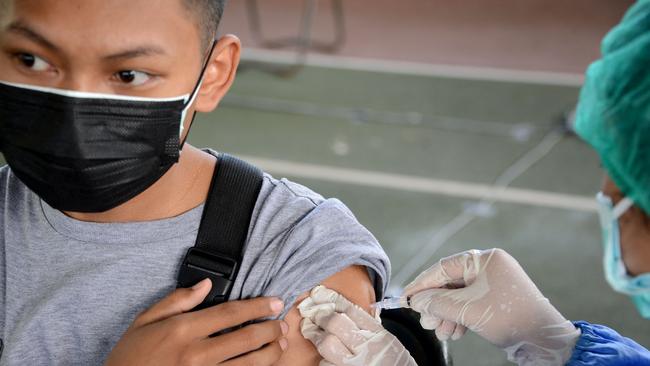
Unions have hit out at the move by fruit and vegetable processor SPC to demand all workers are vaccinated against Covid, as employer groups urge Canberra to set standards on mandatory vaccines.
The Australian Manufacturing Workers’ Union on Thursday attacked the company for failing to consult with the union over its insistence that all its workers at its operations in Shepparton in northern Victoria be vaccinated by November.
But it has stopped short of calling for industrial action, criticising the tightness of the proposed vaccination timetable and calling for Victorian health authorities to become involved.
AMWU national president Andrew Dettmer said SPC’s requirement for staff to have their first jab booked within six weeks was “unrealistic”, with many not yet eligible for a vaccination.
The union’s action is the first shot in what is looming to become the biggest workplace issue of the year as businesses – at the request of government – step up to ensure at least 70 per cent of the country is vaccinated to eradicate lockdowns.
But as the Covid pandemic continues to shut down Australia’s two biggest cities – and with only 15.9 per cent of the population fully vaccinated – employers are hoping state and federal governments will step in to mandate jabs for some sectors, rather than having to risk alienating staff by themselves making it mandatory.
It comes as several US companies – from Microsoft to Walmart and Tyson Foods – have taken a hardline approach, insisting their employees get the Covid-19 shot to contain the fast-spreading Delta variant. Others, like most Australian businesses – including the big banks, Telstra and Wesfarmers – are sticking to “strong encouragement” and incentives such as time off to entice people to get inoculated.
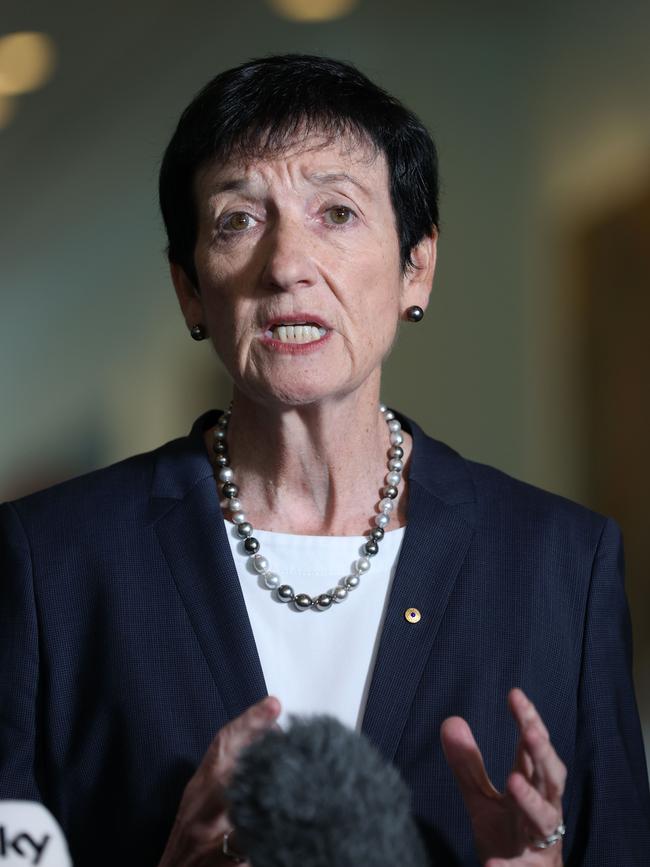
Business Council CEO Jennifer Westacott said it was “time to have a conversation about vaccinating workers in certain high-risk areas” such as quarantine and aviation.
“No one wants to see our hard work undone by one weak link in the chain,” she said.
“The conversation needs to be based on the evidence, the risks and be driven as much as possible through public health orders, not left to individual employers.’’
Asked by reporters if companies should mandate Covid-19 jabs for employees, Prime Minister Scott Morrison said “businesses have to make choices”.
“In a business, that business, at the end of the day, will wear costs of having to do the clean-downs of facilities and the various other things that could happen as a result of an outbreak or something like that nature in their premises,” Mr Morrison said.
The acting chief of the Australian Chamber of Commerce and Industry, Jenny Lambert, said it was “premature” to discuss whether businesses should mandate vaccines given supply issues.
“It is clear the situation has changed as a result of the Delta strain,” she said.
“Employers need to manage risks to their employees, and all those that enter their workplaces, including customers, patrons, diners, and those being cared for.
“We expect most businesses to continue to strongly encourage employees to be vaccinated within an overall policy that vaccinations remain voluntary.
“At least until vaccines are widely available and in most cases beyond it, any health-determined need requiring vaccination is the primary role of government.”
Rob Scott, the chief executive of Wesfarmers which owns retailers Target, Kmart and Officeworks, said: “One of the most important things we can do is to encourage and motivate people to get vaccinated.
“We have been using our stores and communication channels to reinforce these messages.”
Wesfarmers has asked its flu vaccine provider whether it could also provide Covid vaccinations for staff.
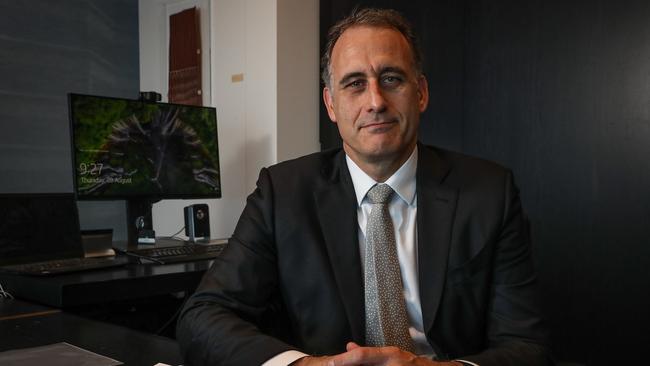
Brisbane-based Trisco Foods’ CEO Mike Tristram said the company, which makes syrups and food thickeners in Australia and the US, had not formed an opinion on compulsory vaccines.
“It’s a complex issue where we aren’t introducing a policy just yet,” he said.
“We do see that in NSW, and possibly emerging in Queensland, the elimination strategy is fading, and the suppression strategy is really going to be reliant upon vaccination rates being quickly ramped up.”
He said the federal government’s handling of vaccine procurement and advice over the AstraZeneca vaccine had been extremely poor.
“The lack of Pfizer as a result of poor advice means that a majority of the population are scared and hesitant now,” he said.
Qantas has called on the federal government to make vaccines mandatory for those in the aviation sector.
Most major employers are strongly encouraging staff to get vaccinated, with CBA and Westpac beginning pilot plans to vaccinate customer-facing staff at their branches in Sydney’s hot spots, but most have shied away from making vaccines mandatory.
Commonwealth Bank CEO Matt Comyn said there was strong demand for vaccines from staff. But there would “clearly be some issues to work through over the coming months as we gradually start to re-open parts of the economy”.
Bendigo and Adelaide Bank chief Marnie Baker said the bank was “doing everything we can to strongly encourage our approximately 7000 people across the country to get vaccinated”.
She said the bank was actively looking at ways to help staff access the vaccine, including paid leave to get their injections.
Harry Triguboff, founder of the nation’s largest apartment builder Meriton, said he believed most of his company’s 3000 sales and construction staff would get the vaccination.
He said 50 per cent of his staff have had their first jab, and 30 per cent their second.
“They are going all the time to get vaccinated. We don’t have to force them,’’ said Mr Triguboff. “We will reach 80 per cent vaccination, no problem.”
Deloitte chief executive Adam Powick said it was “premature” to move towards mandatory vaccination but he believed that “vaccination and rapid testing are critical for Australia to emerge as quickly as possible from disruptive cycles of lockdowns”.
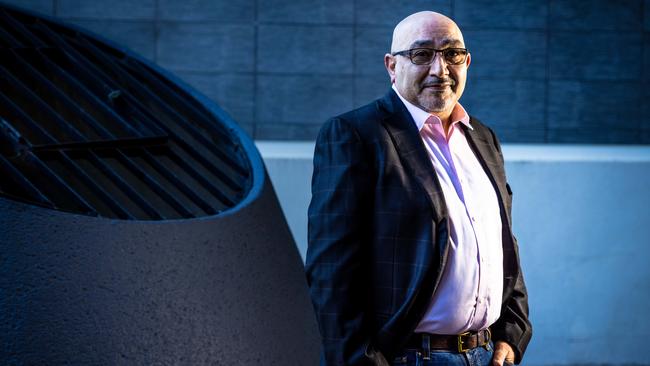
Dr Giuseppe Carabetta, employment law specialist with the University of Sydney, said employers were able to insist that staff get vaccinated “but with significant limitations and depending, particularly, on the nature of the work involved and whether it would be ‘reasonable’ to impose such a requirement”. “The central issue – absent any direct laws such as a public health order in specific essential sectors – will be whether it is lawful and reasonable for the employer to do so,” he said.
He said this could be more difficult for employers outside high-risk areas such as health, disability and aged care.
He did not expect most employers to make vaccines mandatory given the legal complexities involved, but they would offer incentives to get vaccinated.
“This is what we are seeing in other countries, such as the US,” he said. “The issue will eventually become an enterprise bargaining matter, where the unions will have a say on any policy approach and employees can more democratically vote on such issues.”
He said if employers were to move to making vaccinations mandatory without reasonably accommodating their staff there could be challenges in the Fair Work Commission or before discrimination tribunals.
It is understood SPC informed the AMWU about the mandatory vaccinations on Wednesday – the same day Sydney recorded 262 new infections and five deaths, while Melbourne sweated on a sixth lockdown.
“SPC are not showing workers that they are genuinely willing to consult with them over a planned vaccine rollout,” Mr Dettmer said.
“The issue isn’t people’s willingness to get the vaccine, it’s accessibility. The responsibility for the Morrison government’s failing rollout shouldn’t be shifted onto the shoulders of working people. If workers are expected to get jabs in their arms, then we need to ensure the true barriers are removed.
“Mandating vaccination in workplaces needs to be based on the advice of health professionals and proper risk assessment – not just a poorly consulted plan by bosses.”
Federal coalition MP Damian Drum, whose electorate covers SPC’s cannery, said the company’s decision “sets the tone for corporate Australia”.
“People who can receive the vaccination but choose not to are being selfish and holding Australia back,” Mr Drum said.
“I applaud SPC’s decision … it sets the tone for corporate Australia, particularly in light of the threat the Delta variant poses to families, communities and business.”
Additional reporting: Lisa Allen, Cliona O’Dowd, Lachlan Moffet-Grey and Glen Norris



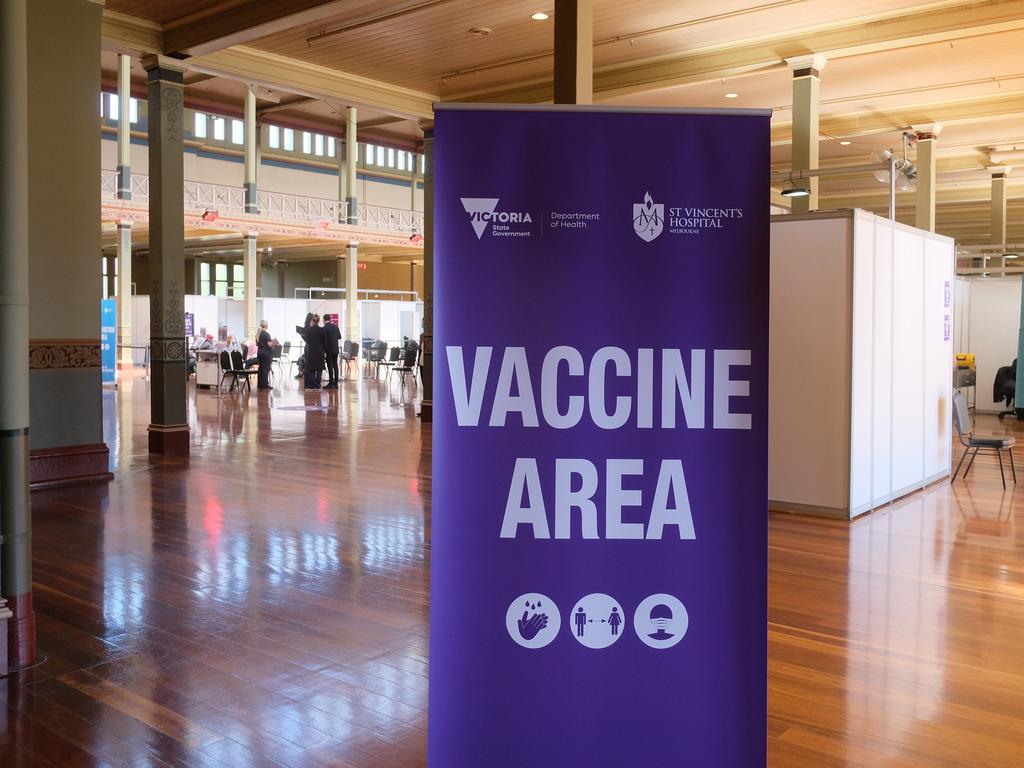



To join the conversation, please log in. Don't have an account? Register
Join the conversation, you are commenting as Logout